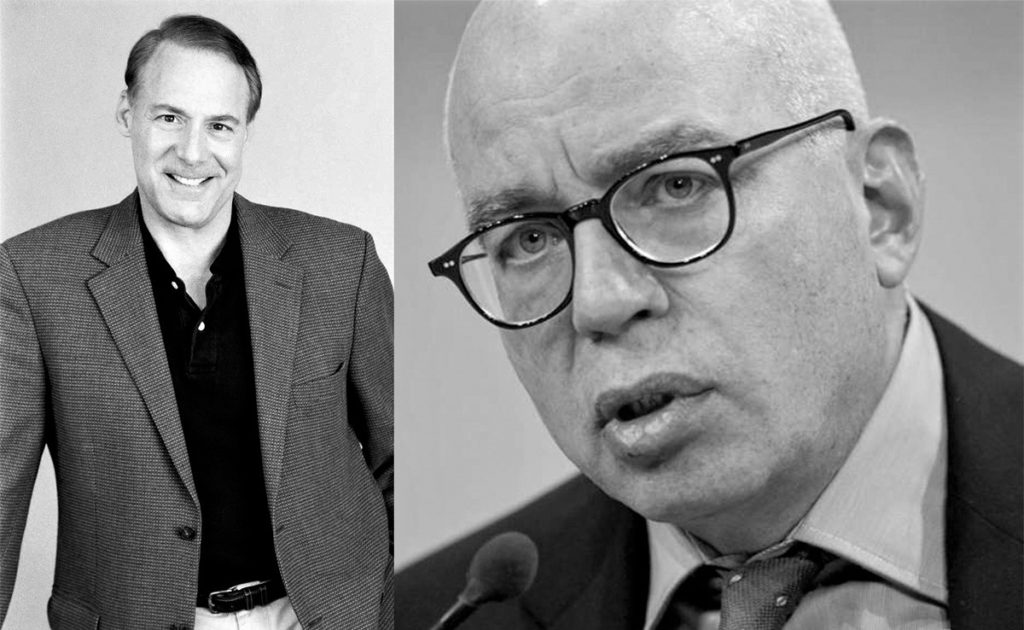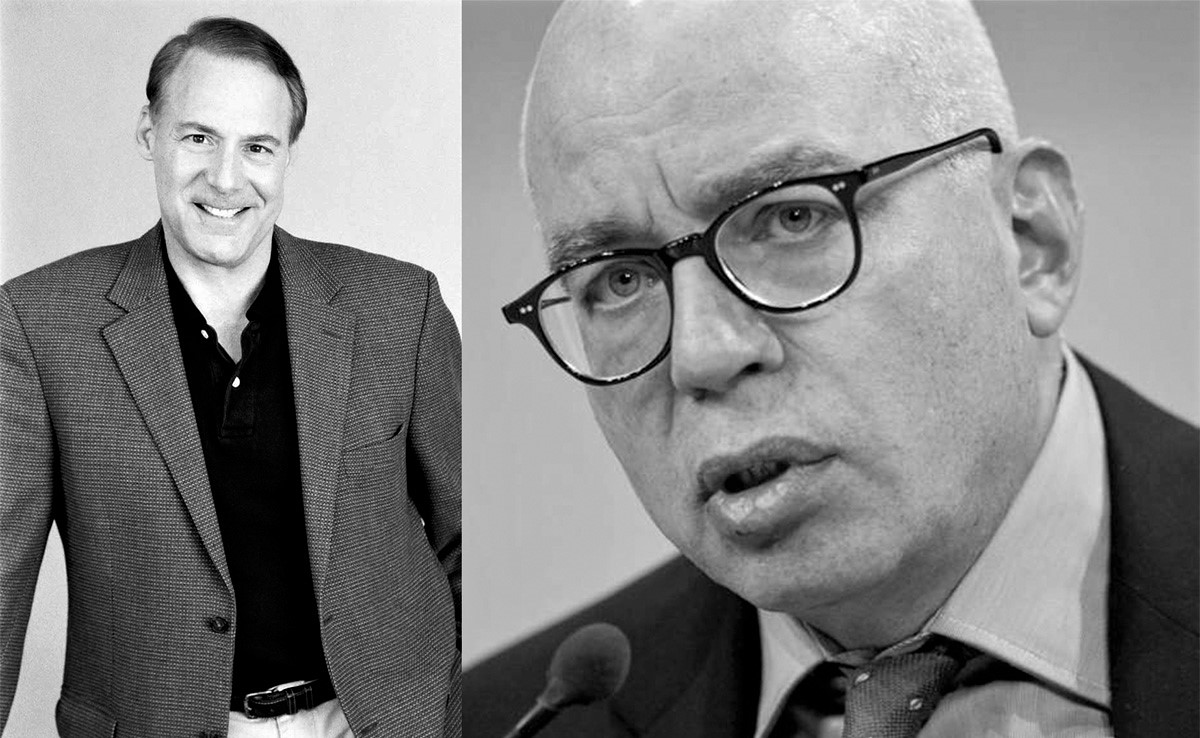If there’s anyone out there who hasn’t heard of Michael Wolff before last week, they’ve certainly heard of him now. Wolff is the author of the controversial new tell-all, Fire and Fury: Inside the Trump White House.
I’m not going to comment on the book. I haven’t read it and don’t intend to. I will tell you about my experience with Wolff that took place at the CNN studios in 2005.

I was in New York to promote the release of my book, What Do You Stand For? One month earlier (Feb. 10, 2005), my publicist and I collaborated on a timely ethics story for Yahoo News: “Ethics Specialist Says Martha is Must Not See TV.”
NBC had announced a deal with Martha Stewart to host a reality-style show called, Apprentice: Martha Stewart. All of this came about before Stewart was released after serving a five-month prison sentence for lying to federal prosecutors and obstruction of justice regarding a stock sale.
Shocked that any TV network would design a show utilizing an unrepentant and convicted felon to ostensibly teach young apprentices “good business acumen,” I asked, “How did we reach a point where people who, after being convicted and sentenced to prison, are rewarded with their own television show where they actually ‘teach’ people the wrong skills to use in business as well as life?”
The following month, I was in New York for a variety of TV and radio interviews when my publicist contacted me. “Martha Stewart is being released from prison, Jim, and CNN’s Aaron Brown is looking for someone to talk about it from an ethical perspective.”
On Thursday, March 4, I was contacted by a producer for the show and asked if I would be willing to discuss this with Aaron and his other guest, Michael Wolff? “Sure,” I said. I spent the rest of the afternoon in the hotel room prepping for what I believed to be eight or ten minutes of back and forth between Wolff and myself.
At the time, Wolff was a well-known writer for Vanity Fair magazine. His writing style can be described as vivid, direct and caustic, particularly when it comes to New York elite. Knowing this however, I could not understand why he was willing to defend Stewart.
I spent the rest of the afternoon reviewing the facts in the Stewart case. According to the SEC, Stewart had willfully avoided a loss of more than $45,000 by selling her shares in ImClone Systems after receiving nonpublic information from Peter Bacanovic, Stewart’s broker at Merrill Lynch. The day after her sale, the stock fell sixteen percent.
Douglas Faneuil, an assistant to Bacanovic, testified that he had, in fact, tipped Stewart to news that ImClone founder Sam Waksal was selling his shares in advance of an adverse ruling against ImClone by the Food and Drug Administration.
Denying all charges, Stewart was found guilty in March 2004 of “felony charges of conspiracy, obstruction of an agency proceeding and making false statements to federal investigators.”
Waksal and Bacanovic were also found guilty of federal charges and sentenced to prison time.
Ready to leave my hotel room for the interview, I’m watching a cable show where two guests are going back and forth interrupting one another; each one louder than the other. I vowed I would not act in any manner that was disrespectful toward Wolff.
I arrive at CNN and escorted to the “green” room where my publicist was waiting with a little pep talk. Moments later, Wolff arrived. In situations where I don’t know others, I typically take the initiative and introduce myself. While Wolff seemed a bit wary at first, he could not have been more polite.
Moments later, in the studio, CNN host Aaron Brown, as expected, greets both of us with smiles and handshakes.
What I did not expect was Wolff’s disarming demeanor when it came to discussing Stewart. Apparently, he had written several favorable things about Stewart and Brown, fully aware of Wolff’s take-no-prisoners approach toward others, was quick to point this out.
BROWN: Michael, have you gone soft here? You’re the most caustic writer I know about media, and yet you see this as a kind of moment of vindication almost for Ms. Stewart or “heroic” is the word you used.
WOLFF: I think I’ve gone soft. I don’t know what it is. There’s something about Martha. There’s something about Martha that has — that makes me go soft and I don’t know what it is that I like her business, that I like her, I don’t know.
(Wolff is so slow and ingratiating, I frankly didn’t know what to say.)
BROWN: Five months ago, would you have said that about her?
WOLFF: Yes. I mean I sat through the trial and I thought, I thought, no, she shouldn’t go to jail and I thought this is — this is a crime, a conspiracy. I don’t know what I thought it was. And then when she went to jail I thought, oh God, you know, this is — this is unfair…
(I can’t believe this guy. I’m waiting, for what seems like a half-hour, to respond, but, as promised, I will not interrupt.)
WOLFF: …and I thought, oh when she gets out of jail this will be great. Why do I think this? I can’t exactly say. …
(Could he BE any slower and more reverential toward Stewart?)
WOLFF: …I have been swept along and I’m professionally not swept along. In this one I have been swept along.
(Even Brown is rolling his eyes, by now. And I’m thinking, put me in the game, coach! Let’s go!)
BROWN: Jim, call me old-fashioned here but, gee, an apology or some contrition would be nice.
ME: I’m old-fashioned too I guess, Aaron, because I think sometimes the public confuses charm for character and I think we need to understand that this person, you know, I have nothing personal against Martha Stewart. She’s a convicted felon and she did do her time but she’s now being held up with a show, “Apprentice, Martha Stewart” for supposedly teaching future apprentices good business skills and leadership skills and I think it’s the wrong role model at this particular time.
(Not great, but okay. But here comes Wolff.)
WOLFF: But there are a couple of issues here. I mean I think at the core of this there’s a lot of people who say, “Well should she have been convicted?” Actually, there’s a lot of people who say “What exactly was she convicted of again?”
(What!!?? I’m ready to jump in, but Brown hits the nail for me.)
BROWN: She was convicted of obstructing justice and lying to thwart an investigation.
WOLFF: But what is that exactly?
BROWN: That’s obstructing justice and lying to…
WOLFF: No, no, no, but that’s — but that’s, no.
(And this is where Wolff begins to filibuster his way through the time slot.)
WOLFF: …Actually, that’s the important point because most people think she was convicted of insider trading. No, no, no, no. She was convicted of obstructing justice to a crime which it turns out that she did not commit.
(That’s wrong. She was guilty of trying to obstruct an investigation.)
WOLFF: …So, there is this kind of thing that I think everyone perceives, you know, there was something funny here.
(I’m stunned, but the only thing I can do is roll my eyes at this kind of illogic, which friends tell me later they could clearly see in the interview.)
ME: I don’t know, am I missing something here? How many times does someone lie to you before they’re a liar? I mean all the reports that I read, she lied.
WOLFF: Well, I think it’s a thing that we recognize that lying is not something you should necessarily go to jail for. Everybody lies.
(Yes, but when you lie to federal investigators and obstruct, you do not pass go, you go to jail. Brown makes a comment, then Wolff quickly jumps in again.)
WOLFF: There’s a lot of people who detest Martha Stewart who still detest Martha Stewart. There have always been a lot of people who adore Martha Stewart. That’s why the company was a success. So, I’m not sure those things merge. I think the people who detest her continue to detest her even more. The people who like her continue now to like her even more.
(He’s filibustering again, and I feel helpless.)
ME: I think it’s perfectly OK to like Martha Stewart or dislike her, however you choose, but the bottom line from an ethical standpoint is, she was convicted by a jury of lying and obstruction of justice and I don’t think this is the kind of role model that we need to be teaching people.
BROWN: OK, but the other side of that is at what point do you go, OK, she did the time and she did the time? I mean, do you hold it against her forever? Is it up to us I think in a sense to say, OK, I mean she’s an imperfect person, she went to jail, she’s paid a price, let it go?
ME: Well, I think the bottom line here is, you know, if she goes back to her lifestyle show, I really don’t have a problem with that. I think she should get on with her life. But I just don’t think — I think it’s the wrong move at this time to be held up as a leadership model for good business skills when she’s a convicted felon.
(I should’ve been more forceful in my response. MUCH more!)
WOLFF: Well, good business skills are can you sell more sheets than the other guy sells? And that’s what we’re going to see.
(What? This isn’t about sheets, towels or Martha’s Christmas turkey recipe. It’s about an individual who lied and obstructed justice to federal authorities and should be the last person to host a TV show teaching business skills. That’s what I should have said when I notice that Brown is getting the word from the booth that the segment is over.)
Back in the “green” room I look at my publicist who just shakes his head. He wanted me to jump in more, cut him off. Get in his face.
“There’s a way to do this, Jim,” he told me. “You visibly shake your head to the host to get his attention causing him to call on you.”
Good tip, but I little late.
What can I say of my fifteen minutes with Michael Wolff? Very polite, very professional and he knew exactly how to control the debate.
And I’m sure he was at the top of the guest list at Martha’s next party.
Comments











